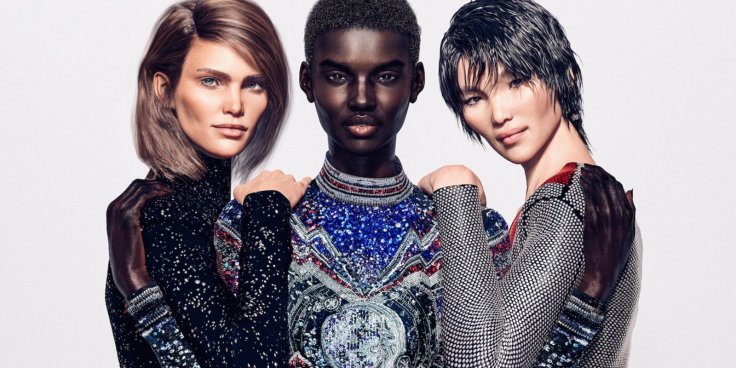A burgeoning sector has emerged in the fashion industry, known as virtual fashion. Unlike traditional physical fashion, virtual fashion is designed and marketed exclusively for avatars and virtual platforms. Many brands are now venturing into this digital realm, offering virtual samples and entire collections, and some brands even exist solely in the virtual space.
This exciting trend not only caters to gaming and dressing virtual avatars but also presents a practical option for showcasing personal style online. Utilizing cutting-edge technologies like augmented reality and artificial intelligence, individuals can now virtually try on and wear digital garments that perfectly fit their body shape.

The Fabricant: One pioneering company in this field is The Fabricant, a Dutch digital design house founded by Kerry Murphy. Originally coming from a visual effects background in the film industry, Murphy brought his creativity to the world of fashion. The Fabricant gained significant attention in 2019 when they sold their Iridescent Digi-couture Dress for a whopping $9,500. Notably, the brand has collaborated with renowned names in the fashion industry, such as Tommy Hilfiger and Sooty. The Fabricant not only offers pieces for download and use by users for free but has also launched a virtual platform called Leela, where individuals can play around with digital dresses.
Carling: Another noteworthy player in the virtual fashion arena is the Norwegian brand Carling. In 2018, they introduced their all-digital clothing collection called Neo-EX, a collaboration with the digital influencer Perl. This collection featured 19 pieces with vibrant colors and clear inspiration from the digital world in prints and graphics. The collection's popularity soared on social media, and all the revenue generated was donated to WaterAid, raising awareness about the environmental impact of physical clothing production.
Republiqe: Singapore-based digital clothing brand Republiqe is also making a mark in the world of virtual fashion. Founded by James Gaubert, their mission is to offer a creative and sustainable alternative to physical wardrobes. As a fully digital fashion brand, they offer a range of luxurious and eclectic pieces that are coded as digital fashion collections and auctioned off as NFT (non-fungible token) garments. To make a purchase, customers need to submit pictures of themselves on the Republiqe website and choose their preferred virtual garment. The brand's team then digitally fits the clothes onto the submitted images, creating stunning visuals perfect for sharing on social media.
Auroboros: Auroboros, a luxury fashion house in the metaverse, stands out for its focus on innovation, sustainability, and immersive design. Founded by Paula Sello and Alissa, Auroboros showcased the first digital ready-to-wear collection at a major fashion week in London. The brand's 14-piece Biomimicry Collection, drawing inspiration from the natural world, is available for purchase on their website, as well as on fashion platforms like Drest and DressX marketplace.
Tribute: Tribute Brand, based in Croatia, is an all-digital fashion brand founded by Gala Marija Vrbanic and Filip Vajda. Their designs are exclusively virtual, drawing inspiration from the world of video games. One of their primary focuses is sustainable design, as virtual clothing production generates no waste materials. Additionally, virtual garments ensure a perfect fit every time. Tribute Brand adopts a limited-edition approach, offering a restricted quantity of their pieces. Once sold out, these items won't be reproduced.
As this new sector of digital-only clothing continues to gain traction, it promises an exciting fusion of technology, sustainability, and creativity within the fashion industry. Virtual fashion offers unique opportunities for personal expression, environmental responsibility, and immersive digital experiences.









